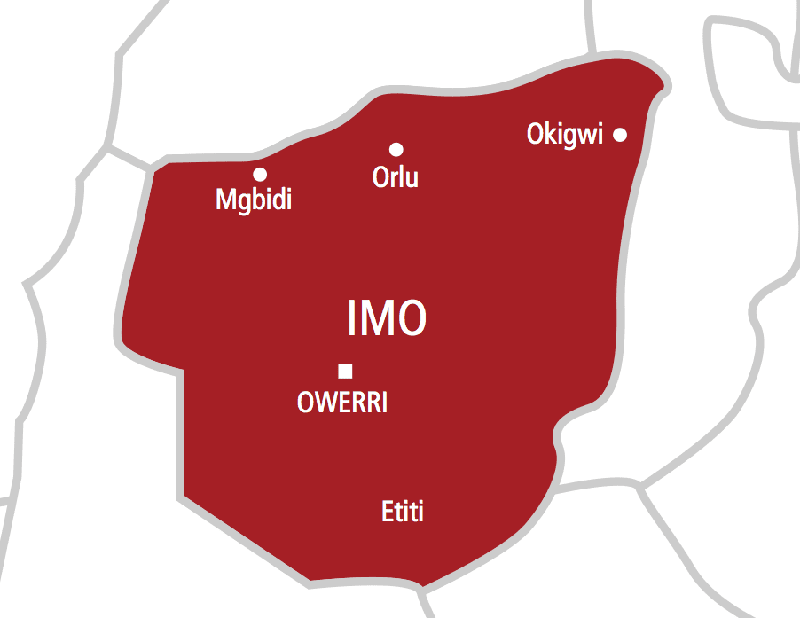Educational Issues
Motivational Factors Among Biology Teachers In Tertiary Institutions In Imo State -By Chinwendu Chinonyerem Emmanuel
This study is expected to be of help to the Biology teachers in order to find out the problems affecting the teaching of Biology so as to make necessary corrections as the future of our youth depends on the background we are able to provide for them. It will help us to find out the needs, teachers desire to participate in the education system and various technique and skills used to achieve a desirable goal and equip biology teachers for promotion.

CHAPTER ONE.
- 0 Introduction
- Background to the Study
Education has been recognized as the fundamental basis on which any nation could function effectively. Its socio – political and economic viability depends solely on the qualitative education given to her citizens. Therefore, the impact needed to build and mould character, knowledge must be motivated adequately because motivation is the key to performance and improvement. Hence it is believed that motivated teachers always complete the tasks set for him even when such tasks or assignment are difficult or seen uninteresting however, the pertinent question that may rise is; what is motivation?
Motivation comes from the Latin word “movers” which means to move. Motivation in education can have several effects on how teachers learn their behaviours towards particular goals which leads to increase effort and energy to enhance cognitive processing, increase initiation and persistence in activities which can also lead to improved in performance (Ormord, 2003). Uchendu, (2014) state that motivation is concern with what direct behavior towards a particular goal. Orphlims (2002) is of view that motivated teachers always look for better ways to do their teaching job, they are more quality oriented and are more productive. Waitley (1996), defines motivation as the inner derive which prompts people to act in a certain way. Harzberg (1978), defines motivation as all the phenomena which are involved in a stimulation of actions towards particular objectives. Motivation is the process that challenges the learner to achieve specific goals. It consists of both internal and external processes that push or pull an individual to action related to some external event usually towards a goal.
It means that motivated teachers are determined to give their best to achieve the maximum output. Therefore, a survey on motivational factors among Biology teachers in tertiary institutions in Imo State will lead to high productivity to the sustenance of the teachers and students progress.
Statement of the Problem.
It is obvious that professional trained teachers always give in their best in carrying out their duties and responsibilities. However, there are some problem faced by most Biology teachers in tertiary institutions which are; insufficient training, inadequate facilities, poor teaching techniques, and inappropriate language of communication. It is in view of this that the researchers are interested in finding out the factors hindering motivation among Biology teacher.
- Purpose of the Study.
- To determine if teachers are well trained through sponsorships.
- To determine if teachers working environment is conducive
- To find out if inadequate facilities affect teachers’ motivation.
- Significance of the Study.
This study is expected to be of help to the Biology teachers in order to find out the problems affecting the teaching of Biology so as to make necessary corrections as the future of our youth depends on the background we are able to provide for them. It will help us to find out the needs, teachers desire to participate in the education system and various technique and skills used to achieve a desirable goal and equip biology teachers for promotion. It will also help us to know if biology teachers are improving on teaching and learning process thereby hoped that the environment will be conducive and motivate them to be more creative and interested in the teaching and learning of Biology. It is also hoped that this survey would help the school administrators and policy makers in tertiary institutions in Imo State to find out the factors hindering motivation among Biology male and female teachers.
- Delimitation of the Study.
This research projects is limited and centered on motivational factors of Biology teachers in tertiary institutions in Imo State.
1.5 Research Questions
The study seeks to answer the following research questions:
- Are teachers motivated through sponsorship training?
- Are teachers motivated in a conducive environment?
- Are teachers motivated through adequate facilities?
CHAPTER TWO
Literature Review
This chapter provides an insight into the literature of the studies conducted by various scholars that were review in relation to this study. This chapter will be reviewed under the following sub-headings.
Conceptual framework, Theoretical framework and Empirical studies.
2.1 Conceptual framework:- This has to do with the concept of the work. It will be discussed under the following
2.1.1 Concept of Motivation:- Newston and Davis (2002), postulate that motivation represents the complex forces and needs which provide the energy for an individual to perform a particular task. According to Huang and Tschopp (2010), a “Motivation is dependent on four dynamic perceptual components: attention, relevance, confidence and satisfaction. People view motivation as a process through which an individual’s needs and desires are set in motion. Lacobucci (2010), defines motivation as a psychological state while Johnson (2003), defines motivation as the degree to which individuals commit efforts to achieve goals that they perceive as being meaningful and worthwhile. Lilian (2017), defines motivation as everything that drives and sustains human behaviour, she also view it as the desire to achieve some goal, level of persistence, continuous process and dependent on the fulfillment of fundamental innate psychological needs for competence, readiness and autonomy. Considering the afford mentioned, it is important that biology teacher in tertiary institutions in Imo State obtain adequate knowledge regarding what motivates them in tertiary institution in Imo State to fulfill their full potentials.
2.1.2 Motivational Factors:- According to business dictionary, motivational factors are drivers of human behaviour related to the intrinsic nature of the work but not necessary to the environment. It centres on the following motivational factors:- communication, training and development, conducive working environment, and remuneration.
- Communication among Biology teacher as a motivational factor:- This involves a process through which direction, information, ideas, explanation and instructions are transmitted from one person to another. Dale (1969), see it as sharing of ideas and feelings in a mood of mutuality, it may be described as a study of message transactions among individuals. Communication among teachers is a transactional, symbolic process which gives people the opportunity to relate and manage their environment by establishing human contact, exchanging information, enforcing the attitude and behaviour of the teachers. In the biology lecture hall, without communication, there will be no possibility of the group influencing the behaviour of the individual.
- Training and Development as a motivational factor among Biology Teacher. Shelly (2007), maintains that training and development is a strategy for biology motivation. It is one of the means of developing capable supervisors for acquainting Biology Teacher with institutional goals and for imparting necessary skills.
iii. Conducive working environment as a motivational factor.
This is a platform devoid of both physical intimidation and emotional frustration which allows for a free exchange of ideas. Freedom of interaction, safety and respect should be equally guaranteed within the physical and emotive environment they find themselves in.
- Remuneration:- According to Bussin (2012), remuneration plays a critical role in attracting, motivating and retaining high performing individuals. Remuneration also encourages reinforces and promotes superior performance.
2.1.3 Impacts of Motivation:- Bill (1998) states that personnel endowed with highest competence and integrity are essentials in academic. This calls for proper management of biology teacher with a sense of purpose, pride and direction. However, in order to increase efficiency and productivity among biology teacher, they need to be motivated. This is because people bring to their work places a crystallized and complex sex of cognition, perceptions and motives. Kishore (2008), observes that when an individual unsettled about social related issues such as recognition, social interactions with colleagues and many others, his/her efficiency will be impeded. It is therefore expected that the work environment should provide a meaningful, satisfying and challenging atmosphere which will unleash human potential within every individual. Lack of motivation may lead to poor work culture such as poor performance, absenteeism, lateness and other behavioural tendencies. Motivation matters a lot in tertiary institutions, schools and others organization because it enhances the performance of Biology teacher and workers in their work place.
2.1.4 Strategies for enhancing motivation among Biology teacher: Akintoye (2000), conducted a study on teacher motivational strategies and revealed that money remains the most motivational strategies. A seminar study by Katz (2005), demonstrates the motivational power of money through the process of Job choice. He explains that money has the power to attract, retain and to motivate individuals towards higher performance. The university Biology teacher in tertiary institutions can adopt some practical strategies for enhancing motivation among the Biology teacher that is going out to see what is happening in various section of Biology teacher in some tertiary institutions in Imo State. This will help them to observe their staffs at work carryout an on-spot assessment, listen to and appraise staff as the case might be.
2.2 Theoretical Framework
This deals with the theories related to this topic. This researcher used these to visualize or provides guidance to the research project. The theory used for this study in order to find out the factors that hinder motivation among Biology teacher.
Maslow’s Theory of Self-actualization:- This theory severally described as theory of growth motivation, need gratification or hierarchy of needs. To him needs are classified into deficit and growth needs. He consistently maintained that human needs are ordered in a form of hierarchy, and satisfying one’s need paves way for the emergence of another need higher up in the hierarchy which then becomes operative in the life of the individual. This position is criticized on the ground that human behaviour cannot be explained in terms of satisfying one’s needs at a time but rather it appears that the interaction among and between many needs satisfaction at any time in point is a better account of human behaviour for example, A man who left his present job to go for a degree certificate in education may be doing so under the force of retaining his job, (Security need) enhanced salary scale (physiological needs), to get knowledge (self-actualization needs), to make and meet friends (social needs) or to achieve better position in his job position (esteem needs). However, despite the above criticism, Maslow’s theory remains one of the best theoretical attempts towards understanding and motivating human behaviour.
2.3 Empirical Studies
Prisca (2015), carried out a research on her studies, she state that motivation is the process of influencing or stimulating person to take action that will accomplish a desired goal, needs and wishes. Five research questions were used and reviewed of literature review. They are based on Mc Gregor’s theory x and y and survey design where used for the studies. Her study was to find out the possible way of motivating our teachers.
Adegun (2013), carried out a research in his studies. The purpose of his study is to identify the impact of motivation on teacher’s performance. He used simple random sampling technique to select the numbers of schools used for the research. The sample size of his study was 120 persons (teachers only). Questionnaire was the instrument for data collection. The responses on the Questionnaire were used to answer the research question and the main scores of rating of the items were computed and used as a guide in analyzing the responses and he used cognitive-field theory of motivation on his study.
Nwachukwu (2016), carried out a research in his studies, he state that motivation helps in motivating and evaluating an individual to achieve his or her potential. Five research questions were used for the study. He used Herberg’s theory of motivation and Victor Room’s motivation in his studies. His finding was to find out how inadequate facilities and communication affect teachers motivation. Recommendations were also made.
2.4 Summary of Literature Review
This chapter discussed the concept of motivation, theories of motivation which is Maslow theory of self-actualization and how the influence performances among Biology teacher in tertiary institution and empirical studies on related study carried out by another author. Schitz (2003), argue that the theory discussed above contributed in its unique way to enhance the understanding of teacher and staff motivation in school. This chapter also cover’s the motivational factors, impact of motivational, strategies for enhancing motivation.
The findings based on various studies showed that motivation of student is affected by various factors.
It is therefore important for university Biology teacher, management and staffs to understand all these things treated in this chapter, by so doing teachers will be well motivated and become productive in terms of meeting their expected targets. From the Literature reviewed concerns is shown towards major decisions on their development like planning, organizing, directing and co-coordinating their activities.
CHAPTER THREE
RESEARCH METHODOLOGY
3.0 Introduction:
This chapter is concerned with the methodology by which the study was carried out. It will be discuss under the following sub-heading: Research design, Research Area, Population of the Study, Simple size and sampling techniques, Instrument for data collection, validation of the Instrument, data collection techniques, and method of data analysis.
3.1 Research Design: The research design adopted for this study is descriptive survey method. This is because it involves a systematic and comprehensive way of collecting information about people opinions, attitudes and behavior. It is the most suitable method carrying out a research involving a large population.
3.2 Research Area
Imo State has a landmass of 5,100km. It is bounded by Anambra, Niger Delta, Niger River and Abia states. The state has 27 L.G.A about the highest number of L.G.A in South Eastern Nigeria. Therefore, the study was carried out among the five tertiary institutions which include: Imo State University, federal University of Technology, Alvan Ikoku Federal College of Education, federal Polytechnic Nekede and Imo State Polytechnics, Umuagwo.
3.3 Population of the Study
The population comprised of hundred and fifty (150) Biology teachers in all the tertiary institutions in Imo State. They include the following:
| Names of Tertiary Institutions | Population |
| Imo State University, Owerri | 31 |
| Federal University of Technology, | 27 |
| Alvan Ikoku Federal College of Education, Owerri | 33 |
| Federal Polytechnic Nekede | 29 |
| Imo State Polytechnic, Umuagwo | 30 |
| total | 150 |
Source:. Department of Biology Imo State Tertiary Institution
3.4Sample and Sampling Technique. Simple random sampling technique was adopted for the study and a sample size of fifty (50) teachers was used.
3.5 Instrument for Data Collection.
A Structured Questionnaire was appropriate for data gathering instrument. The questionnaire was divided into sections, section A and B section A is data regarding the personal profile of the respondent while section B contained the question in which the respondents are expected to give answers.
3.6 Validation of the Instrument
To ensure content validation, the questionnaire was sent to the project supervisor; some of the questions that appeared vague were corrected and amended.
3.7 Data Collection Techniques:
The questionnaire will be administered to the respondents in their various institutions. The researcher did this herself for easy recovery of the questionnaire.
3.8 Method of Data Analysis
Data collected for this study were analyzed using frequency tables and percentage. These methods ensured ease of presentation analysis and understanding.
CHAPTER FOUR
RESULT PRESENTATION
4.0 Introduction.
The data collected in relation to the study were analyzed, presented and discussed using frequency count simple percentage and tables.
4.1: Respondent on if teachers are well trained through sponsorship.
This study sought to find out if teachers are well trained through sponsorship.
Table 1: Are teachers motivated through sponsorship training?
S/N ITEMS FREQUENCY PERCENTAGES 1 Yes 30 60 2 No 20 40 Total 50 100%
From table 1 above, it was indicated that the numbers of respondent that answered yes 30(60%) agree that teachers undergoes sponsorship training which help them to encourage and motivate themselves while 20 (40%) of respondent disagree that teachers are not motivated through sponsorship training.
Therefore, it is accepted that teachers are motivated through sponsorship training in order to help them to improve on their teaching skills.
4.2: respondent on if teachers working environment is conducive.
The study sough to find out if teachers working environment is conducive or not.
Table II: Are teachers motivated in a conducive environment?
S/N ITEMS FREQUENCY PERCENTAGES 1 Teachers working environment is adequately conducive to carry out its activities. 15 30 2 Is environment in your school suited for teachers’ motivation? 18 36 3 Teacher’s motivation encourages them to make teaching more interesting and meaningful. 17 34 Total 50 100%
Table II indicated that 18 (36%) of respondent agree that a good environment in a school is appropriate nice in motivating teachers. 15 (30%) agree that teachers working environment is adequately conducive to carry out its activities 17 (34%) agree that teachers motivation encourages them to make teaching interesting and meaningful which has to do with a good working conducive environment.
Therefore, without good conducive environment, the teachers will not be highly motivated and this will make them not to focus on what they are doing. A good conducive environment is for effective teaching and learning process which make it more meaningful for them to yield a productive goal.
4.3: inadequate facilities affect teachers’ motivation.
Table III: Are teachers motivated through adequate facilities?
S/N ITEMS FREQUENCY PERCENTAGES 1 There are some challenges encountered in motivating teachers. 20 40 2 Inadequate facilities, poor teaching system, communication, and remuneration are among the challenges encountered in motivating teachers. 19 38 3 Teachers are adequately remunerated in other to ensure their retention. 11 22 Total 50 100%
The result of table III indicated that 20 (40%) agree that teachers encountered a lot of problems in motivating them which they agree 19 (388) that lack of communication, inadequate funds, facilities, precision of infrastructural facilities, conducive environment, remuneration are most of the problems factors they faced. 11 (22%) accepted that with remuneration, they can be able to motivate themselves and ensure their teaching retention.
Therefore, it is hoped that adequate facilities encourages motivation among well training teachers and which will make them lively in pursue of their teaching job
4.4: Discussion of the Findings
Table 1 was in view with Ezeocha (1985) which state that the presence of non-qualified teachers is a problem to the school because such teachers that possess some factual knowledge are often not trained in the methodology area on which well trained teachers possess.
Table II also discussed about conducive environment which is among the motivational factors used in motivating teachers or individuals. It is a freedom of interaction or exchange of an idea which helps to motivate teachers in other to improve quality and standard education.
The work environment should be meaningful, satisfying and conducive in other to carry out objective and goal. A rich environment stimulates and promotes teaching.
Table III was also in view that adequate facilities make teaching and learning effective and efficiency. Teachers would be adequately motivated if adequate teaching facilities were made available and put in better place which might being about a change in teachers behavior which would translate into optimal commitment in teaching.
Therefore the general observation made by the researcher is that a motivated teacher strives to put effort together so as to create impact on them. An effective teacher is the one that has good ability in motivating carrying and disseminating knowledge.










